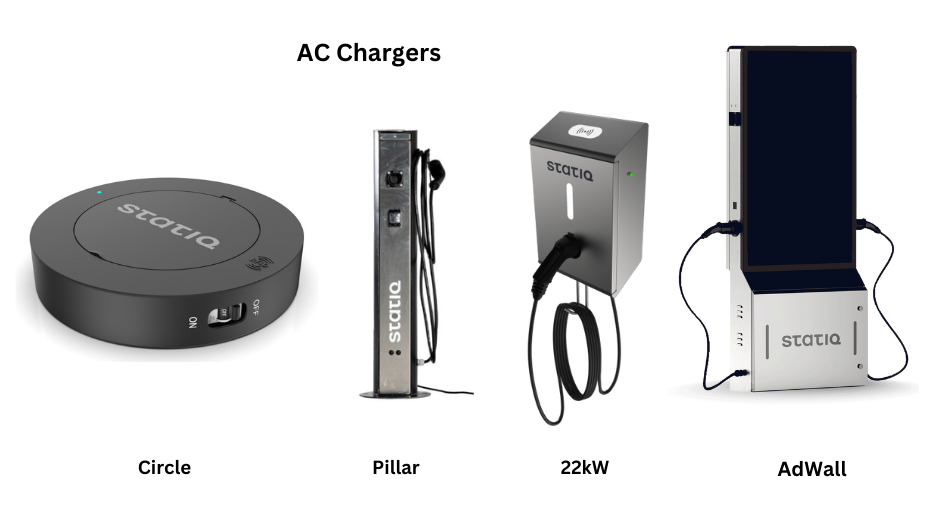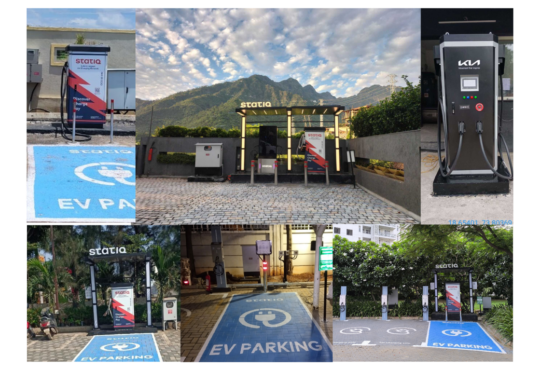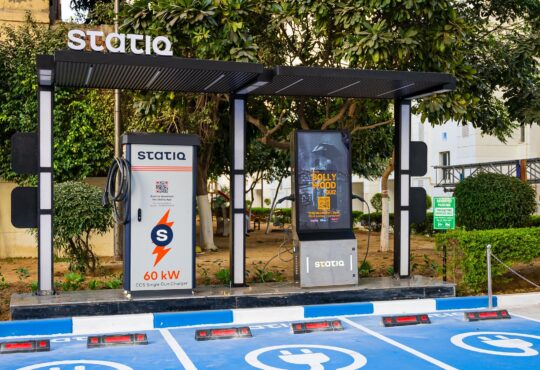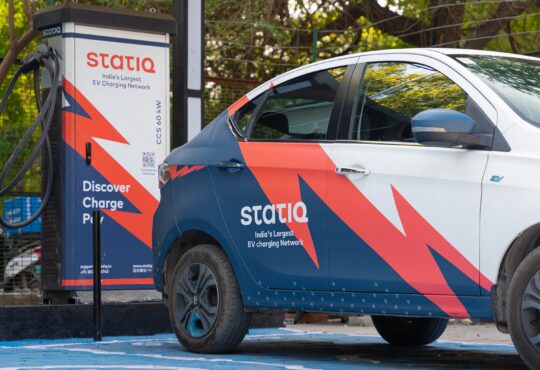
Difference between AC and DC Electric Vehicle chargers
Electric vehicles (EVs) have gained popularity in recent years, and the infrastructure to support them has been growing as well. One of the crucial components of the EV infrastructure is the electric vehicle charging stations. There are two types of EV chargers available at EV charging stations– AC electric chargers and DC electric chargers.
EV owners often find it confusing as to which charger to choose when charging their electric vehicles, i.e., AC or DC chargers. In this blog post, we’ll discuss the difference between AC and DC electric vehicle chargers, so that you can make an informed decision when choosing an electric car charger for your need.
What is an AC Electric Vehicle Charger?

An AC electric vehicle charger, also known as a Level 1 or Level 2 EV Charger, uses alternating current (AC) to power electric vehicles. AC chargers use a transformer to convert the electrical current from the grid into the AC required to charge the battery of an electric vehicle.
Level 1 charging is usually done using a standard household outlet, providing a charging rate of about 3-5 miles of range per hour of charging. Level 2 charging, on the other hand, uses a higher-powered electrical outlet, typically providing a charging rate of about 10-20 miles of range per hour of charging.
What is a DC Electric Vehicle Charger?

A DC electric vehicle charger, also known as Level 3 or fast charging, is a type of charger that uses direct current (DC) to power electric vehicles. DC chargers use rectifiers to convert the electrical current from the grid into the DC current required to charge the battery of an electric vehicle. This type of charging is typically faster than AC charging, providing a charging rate of about 60-100 miles of range per hour of charging.
Difference between AC and DC Electric Vehicle Chargers
There are several key differences between AC and DC electric vehicle chargers, including charging speed, cost, and compatibility.
- Charging Speed: The biggest difference between AC and DC electric vehicle chargers is the charging speed. DC fast chargers provide the fastest charging times, allowing electric vehicle owners to quickly add a substantial amount of range to their vehicles in a short period. AC Level 2 chargers, on the other hand, provide a slower charging speed but are still much faster than Level 1 charging.
- Cost: Another difference between AC and DC electric vehicle chargers is the cost. DC fast chargers are typically more expensive to install than AC chargers due to the need for more complex electrical systems and specialized equipment. AC Level 2 chargers are less expensive than DC fast chargers but still more expensive than Level 1 chargers.
- Compatibility: Another key difference between AC and DC electric vehicle chargers is compatibility. DC fast chargers are typically only compatible with a limited range of electric vehicles, while AC Level 2 chargers are compatible with a wider range of electric vehicles. This means that if you own a particular type of electric vehicle, you may not be able to use a DC fast charger unless it’s specifically designed for your vehicle.
Which EV Charger can you choose?
The type of electric vehicle charger you choose will depend on your specific needs and circumstances. If you need to quickly add a substantial amount of range to your electric vehicle, a DC fast charger may be the best option for you. However, if you don’t need the fastest charging times, or if you own an electric vehicle that’s not compatible with a DC fast charger, an AC Level 2 charger may be a better choice.
How to find an EV charger near you?
Now discovering an EV charger is just a few clicks away with the Statiq EV charging mobile application. It is available in both Android and IOS versions. You just need to download the application, locate the charger near you, and go to the Electric Vehicle charging Station to charge your vehicle. Once you have charged your vehicle, you can pay conveniently using a mobile wallet.
Conclusion
In conclusion, both AC and DC electric vehicle chargers have their own unique advantages and disadvantages. The type of charger you choose will depend on your specific needs and circumstances, including your charging speed requirements, budget, and compatibility with your electric vehicle.
You can choose a DC fast charger if you are in a hurry and need to charge your vehicle in a short period. However, you should choose an AC Level 2 charger if you are not in a hurry or your electric car is incompatible with a DC fast electric car charger. You should prefer an AC EV charger for your daily charging needs as it will enhance the battery life of your electric vehicle.
Also Read, EV Charging Simplified With Autocharge



